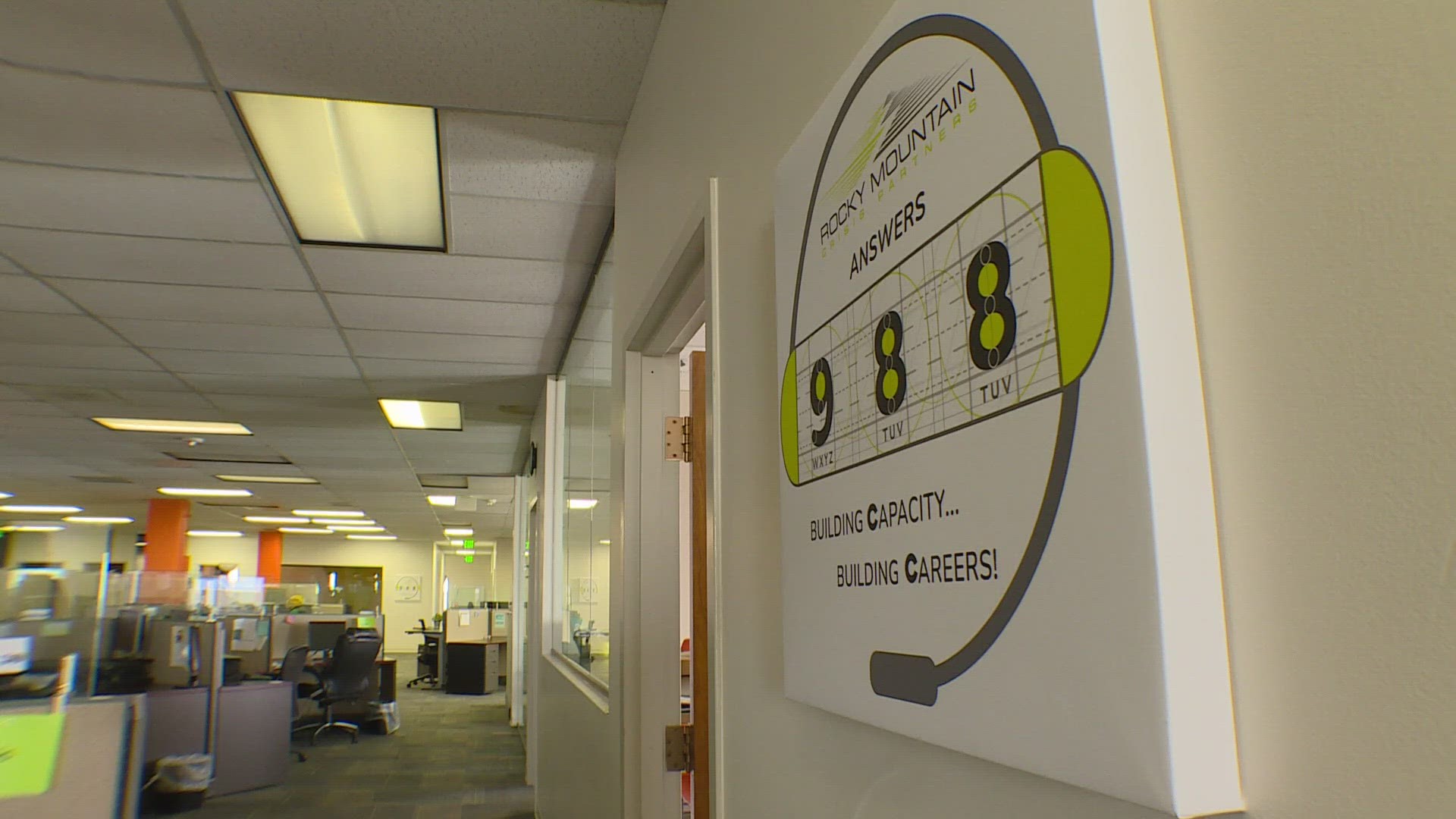DENVER — When a patient is discharged from the hospital following a suicide attempt, their crisis is not always over -- and help can be hard to find.
The Colorado Office of Suicide Prevention announced it is expanding a program, called The Follow-up Project, to help further fill that gap.
"People sometimes just need someone to empathize and to hear and to care and to check in to create that space and to provide additional resources as needed," explained Lena Heilmann, the director of the Office of Suicide Prevention. "People remain at elevated risk for suicide after experiencing a suicidal crisis or a suicide attempt."
The Follow-up Project is a "post-vention" program where call-takers at the Colorado Crisis Services proactively reach out to patients, rather than only answer the 24/7 crisis hotline.
Heilmann said data shows in the month after someone leaves psychiatric care, they can be up to 300 times more likely to die by suicide. Up to 70% of people discharged from a hospital emergency room after a suicide attempt never show up for their first therapy appointment.
"We know that having non-demanding, caring contact check-ins helps reduce the likelihood someone will re-experience suicidal despair or re-attempt suicide," Heilmann said.
That's where the free Follow-up Project comes in. Participating hospitals -- there are now more than 70 -- ask patients if they want the check-ins when they're discharged. If the patient says yes, the hospital passes them along to trained call takers who then give them a ring about once a week for the first month -- when the risk is highest.
The program has provided more than 19,000 follow-up services since it began in 2018 and now it's expanding to connect younger patients with free therapy. A new partnership with The Second Wind Fund will connect youth under 19 to connect with free therapy appointments.
"After a young person is referred by the Follow-Up Project, Second Wind Fund will pay for 12 sessions of therapy at no cost to the youth or their caretakers and will help families navigate services," the state health department said.
The goal, Heilmann said, is to provide services and hope to people who have shown they need help. "There are so many options and opportunities to survive that despair," she said. "Even in those high risk periods, even after someone has experienced suicidal despair, the greatest likelihood is that someone will find the supports that they need. They will find a way to survive and ultimately thrive in their lives."
SUGGESTED VIDEOS: Mental Health & Wellness

